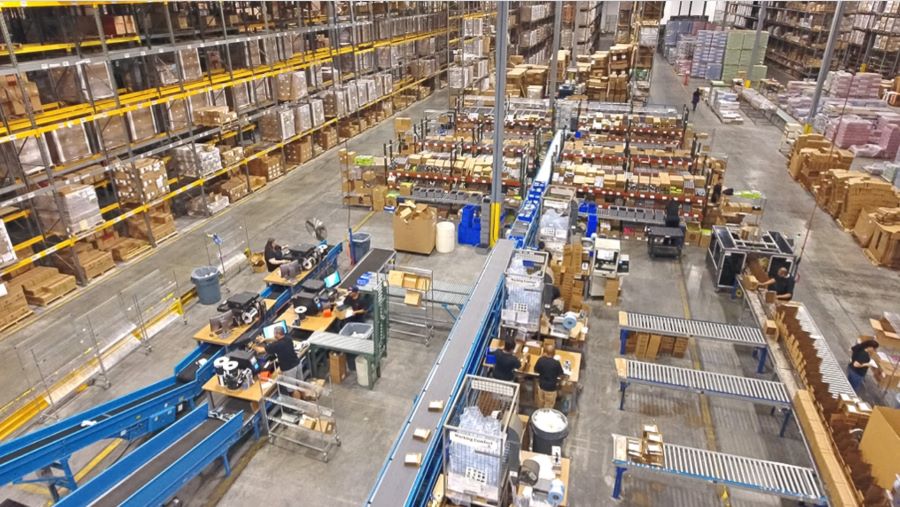As the digital landscape is evolving, so does the realm of e-commerce, in which consumer expectations are at an all-time high. Amidst the rise of online shopping, businesses are constantly seeking innovative solutions to meet the demands of their customers. A crucial aspect of this evolution is the fulfilment services aiding online retailers in providing products efficiently and effectively. This growing need for speed and accuracy in order processing has led to the emergence of highly sophisticated fulfilment centres, which play a pivotal role in the entire supply chain.
In today's fierce marketplace, fulfilment services have transformed from a mere logistical necessity into a strategic advantage for e-commerce companies. By utilizing cutting-edge technology and advanced automation, these centres are enabling businesses to optimize their operations, shorten delivery times, and enhance customer satisfaction. As we move forward, understanding the trends shaping fulfilment services will be essential for any retailer who wants to succeed in the ever-changing e-commerce landscape.
Breakthroughs in E-commerce Fulfilment Tech
The realm of digital commerce is quickly transforming, with order processing services at the leading edge of this change. Improvements in tech are transforming how fulfilment centres function, boosting productivity and lowering overheads. Automation is a crucial driver, with technologies like machines and AI enabling faster order fulfillment. Automated systems help optimize the picking and packing, permitting fulfilment centres to manage greater quantities of orders with greater precision.
Another significant advancement is the integration of advanced data analytics. This approach allows fulfilment centres to anticipate demand more effectively, enhance inventory levels, and improve inventory management. By employing live data, businesses can take data-driven actions, ensuring they have the necessary goods in stock at the right time. Such analytical techniques not only improve customer satisfaction but also reduce excess stock and waste, optimizing operational expenses.
In conclusion, last-mile delivery strategies are becoming increasingly advanced. Innovations such as drone deliveries and driverless cars are starting to change how shipments are delivered to customers. Distribution centers are now pursuing collaborations with innovation leaders to implement these solutions, striving for quicker and more reliable fulfillment tactics. As clients continue to demand rapid shipping times, delivery services that invest in these advanced technologies will be more prepared to meet market needs and improve the shopping journey.
Green Practices in Logistics
As online shopping continues to increase, the environmental impact of order fulfillment processes has come under scrutiny. Organizations are increasingly acknowledging the significance of adopting green practices to curtail their greenhouse gas emissions. This includes improving packaging materials to reduce waste and utilizing sustainable alternatives that are sustainable or biodegradable. By streamlining their logistical operations and adopting more sustainable sourcing practices, organizations can play a vital role in minimizing their ecological footprint.
Furthermore, energy efficiency in fulfilment centre s is becoming a primary concern for many organizations looking to implement sustainability programs. Utilizing sustainable energy such as solar power or wind energy can significantly lower power usage and contribute to a greener operation. Advanced technology, including automated systems and smart logistics solutions, helps to improve productivity, leading to lower energy use and lower emissions during the shipping process.
In conclusion, eco-friendly logistics extend to transportation methods as well. Many businesses are exploring electric or combination vehicles and enhancing transportation routes to minimize distances traveled. Additionally, there is a rising movement towards using proximity-based logistics to ensure faster and more sustainable delivery options. By utilizing these practices, online retailers can not only satisfy the need for rapid fulfilment but also demonstrate a commitment to eco-consciousness.
The Role of Automation in E-commerce Fulfilment
Automation has become an essential component of modern fulfilment systems, significantly enhancing productivity and reliability in the e-commerce field. By utilizing automated technologies such as robotics and artificial intelligence-based software, fulfilment centres can manage and control inventory with incredible speed. This transition allows companies to meet the ever-increasing demand for accelerated delivery, which is vital in keeping competitive advantages. As a result, businesses can process higher volumes of orders while reducing the risk of mistakes in picking and packing.
Another key aspect of automation in fulfilment is the enhancement of warehousing operations. Automated systems can interpret data in actual time, allowing fulfilment centres to improve their warehouse configurations and accelerate order processing. This leads to more efficient space utilization and lowered operational costs. With robotic systems taking on manual tasks such as retrieving products and categorizing packages, employee employees can dedicate their efforts to more intricate duties that demand analytical skills and creativity. This not only boosts productivity but also fosters a more involved workforce.
Lastly, automation contributes to better customer contentment in e-commerce. Systems that actively track inventory and oversee orders ensure punctual shipping and precise fulfilment processes. This consistency builds trust with customers, which is essential in retaining repeat business. Moreover, automated customer service solutions, such as virtual assistants, can provide immediate support and information about order tracking. As automation continues to progress, it promises to elevate fulfilment services, paving the way for a more intelligent and more responsive e-commerce landscape.

